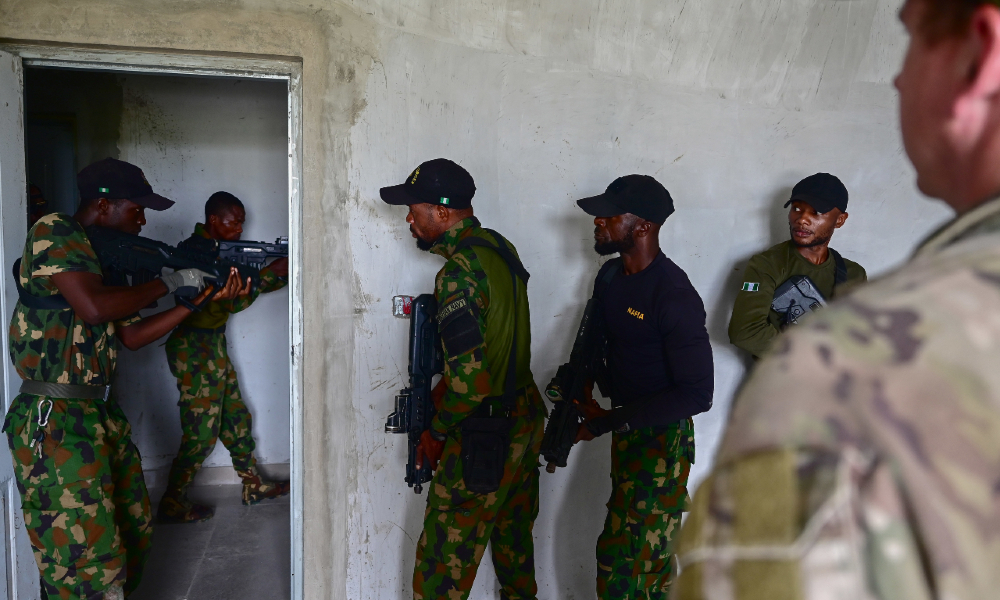Phillip Carter on VFW Brief Supporting Government in Al-Aulaqi
[The following post is written by Phillip Carter, a former Army officer and Deputy Assistant Secretary of Defense for detainee policy, who practices law at McKenna Long & Aldridge LLP, and who co-authored the VFW amicus brief described below with Herbert L. Fenster, senior counsel with the firm’s government contracts group.
Published by The Lawfare Institute
in Cooperation With

[The following post is written by Phillip Carter, a former Army officer and Deputy Assistant Secretary of Defense for detainee policy, who practices law at McKenna Long & Aldridge LLP, and who co-authored the VFW amicus brief described below with Herbert L. Fenster, senior counsel with the firm’s government contracts group. JG]
Following this blog's discussion of the al-Aulaqi case, and some offline discussions we've been having about the separation of powers, Jack asked me to post a short note about an amicus curiae brief we filed last week on behalf of The Veterans of Foreign Wars of the United States (“VFW”), supporting the Government's motion to dismiss.
Briefly stated, the VFW's brief agrees with the Government's motion to dismiss on, inter alia, political question grounds, but seeks to supplement the Court's understanding of why the political question doctrine matters so much in the sphere of military operations, particularly with respect to special operations such as those at issue. Our brief argues that allowing this suit to proceed would undermine core military imperatives such as unity of command, unit cohesion, and battle command. And, we also argue that allowing this suit to proceed would potentially compromise the sensitive sources and methods relied upon by special operations forces for their success and survival.
Additionally, our brief takes issue with the declaratory and injunctive relief sought by al-Aulaqi, arguing that these extraordinary and unprecedented remedies would run contrary to the strategy embraced by all three branches of Government, and also undermine the military's command structure and effectiveness:
In asking the Court to hear this case, and to entertain the extraordinary remedy of injunctive relief against the President and his cabinet, the Plaintiff is asking the court to overturn the political judgment of the President and Congress that the nation is at war; that this war is an armed conflict against Al Qaeda; and that it is appropriate to use a blend of military, intelligence and diplomatic force to wage this war. All three branches of Government have decided that “[w]e are [] at war with al Qaeda and its affiliates.” Remarks of the President on National Security, May 21, 2009; see also Authorization for Use of Military Force (“AUMF”), Pub. L. No. 107-40, 115 Stat. 224 (2001); Hamdan v. Rumsfeld, 548 U.S. 557, 628-31 (2006). Political leaders from both political parties, over the course of two presidencies and five elected Congresses, have agreed upon, authorized, and appropriated funds for this war against Al Qaeda. It is a fundamental axiom among American strategists that, “[a]s a nation, the United States wages war employing all instruments of national power – diplomatic, informational, military, and economic.” U.S. Joint Chiefs of Staff, Joint Pub. 1, Doctrine for the Armed Forces of the United States at I-1 (2009) [link omitted]. Plaintiff would seek to overturn the considered judgment of this nation’s political leaders in choosing the national strategy for this war, including the Attorney General of the United States, who has written that, in this war against Al Qaeda, “we must use every weapon at our disposal . . . [including] direct military action, military justice, intelligence, diplomacy, and civilian law enforcement.” See Letter from Attorney General Eric H. Holder, Jr. to Sen. Mitch McConnell, February 3, 2010 (emphasis added). The relief requested by plaintiff is both extraordinary and inappropriate, and completely inconsistent with the strategic imperative for “unified action [which] ensures unity of effort focused on [national] objectives and leading to the conclusion of operations on terms favorable to the United States.” See Joint Pub. 1 at I-1.
Jack Goldsmith is the Learned Hand Professor at Harvard Law School, co-founder of Lawfare, and a Non-Resident Senior Fellow at the American Enterprise Institute. Before coming to Harvard, Professor Goldsmith served as Assistant Attorney General, Office of Legal Counsel from 2003-2004, and Special Counsel to the Department of Defense from 2002-2003.





